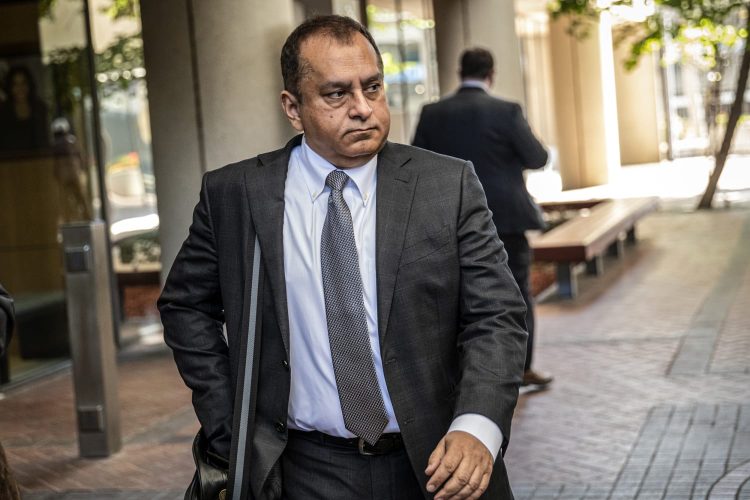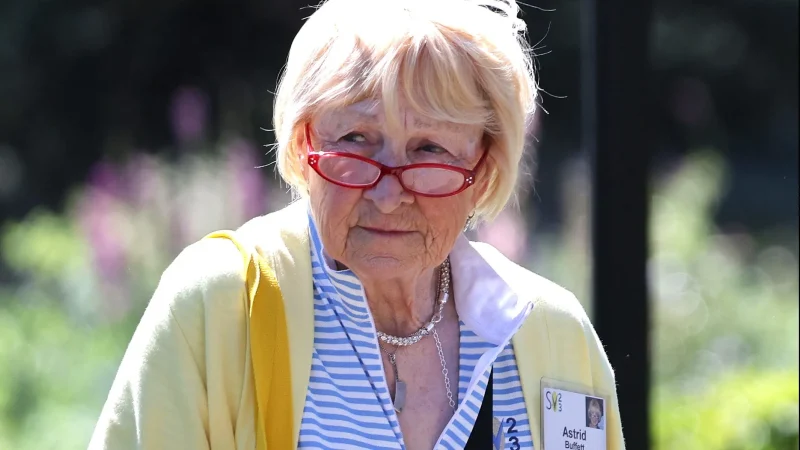Sunny Balwani: The Rise and Fall of a Silicon Valley Executive

infamous corporate scandals of the 21st century. From his tenure as the COO of Theranos to his conviction in a major fraud case, Balwani’s story is a cautionary tale of ambition, deception, and the risks inherent in unchecked startup culture. This article delves into his life, career, and the eventual downfall that made headlines worldwide.
Early Life and Education
Ramesh “Sunny” Balwani was born in Pakistan in 1965. His family, part of the Sindhi Hindu community, migrated to the United States during his early years. Balwani pursued higher education in the U.S., earning a degree in information systems. His academic pursuits reflected his interest in technology and business, setting the stage for his future career.
Balwani continued his studies at the University of Texas at Austin, where he earned a bachelor’s degree in information systems. Later, he attended the University of California, Berkeley, for an MBA program. It was during this time that he began forging connections in the tech world, leading to opportunities in Silicon Valley.
Early Career and Success
Before his association with Theranos, Balwani had a successful career in the tech industry. He worked at companies like Microsoft and Lotus Software before co-founding CommerceBid, a startup that provided e-commerce solutions. CommerceBid gained traction during the dot-com boom, and Balwani’s leadership led to its acquisition by Commerce One in 2000.
The sale of CommerceBid made Balwani a multimillionaire, reportedly netting him around $40 million. However, the subsequent collapse of Commerce One during the dot-com bust highlighted the volatility of the tech industry. Despite this setback, Balwani’s wealth and experience positioned him as a seasoned entrepreneur, allowing him to explore new ventures.
Meeting Elizabeth Holmes
In 2002, Balwani met Elizabeth Holmes, the future founder and CEO of Theranos. Holmes, then a Stanford University student, had ambitious plans to revolutionize healthcare through a proprietary blood-testing technology. The two reportedly developed a close relationship, with Balwani eventually becoming a key figure in her life, both professionally and personally.
Balwani’s influence on Holmes was profound. By 2009, he joined Theranos as its president and COO, bringing with him a mix of business acumen and an unwavering belief in Holmes’s vision. Despite having no formal background in biochemistry or medical sciences, Balwani took charge of critical aspects of the company, including operations, investor relations, and corporate strategy.
The Theranos Dream
Theranos promised to disrupt the healthcare industry with a groundbreaking technology that could perform hundreds of tests using just a few drops of blood. The concept was revolutionary, and the company attracted high-profile investors, amassing billions in valuation.
As COO, Balwani played a crucial role in shaping the company’s public image. He was known for his assertive leadership style and his efforts to maintain secrecy around the company’s operations. Under his watch, Theranos secured partnerships with major retailers like Walgreens and Safeway, aiming to bring its technology to a broader audience.
However, behind the scenes, the company faced significant challenges. Reports from employees and whistleblowers later revealed a toxic work culture marked by intimidation and fear, often attributed to Balwani’s management style. Employees who questioned the technology or its feasibility were reportedly silenced or forced out, fostering an environment of secrecy and mistrust.
The Scandal Unfolds
In 2015, investigative reporting by The Wall Street Journal began to unravel the truth about Theranos. The company’s proprietary technology, it turned out, was largely ineffective and unreliable. Instead of using its devices, Theranos had been relying on conventional lab equipment to conduct tests.
Balwani, alongside Holmes, was accused of perpetuating a massive fraud by misleading investors, patients, and partners about the capabilities of the technology. While Holmes was often seen as the public face of Theranos, Balwani was deeply involved in its day-to-day operations and strategic decisions.
The fallout was swift and dramatic. By 2016, Theranos faced multiple lawsuits, regulatory scrutiny, and a federal investigation. The company dissolved in 2018, leaving behind a legacy of broken promises and financial ruin for many investors.
Legal Battles and Conviction
In 2018, both Holmes and Balwani were charged with multiple counts of fraud and conspiracy. The charges alleged that they had knowingly deceived investors and patients about the efficacy of Theranos’s technology.
Balwani’s trial was separate from Holmes’s, and he maintained his innocence throughout the legal proceedings. However, in July 2022, a federal jury found him guilty on 12 counts of fraud, including wire fraud and conspiracy to commit wire fraud. He was sentenced to nearly 13 years in prison, marking one of the harshest penalties for a white-collar crime in Silicon Valley history.
The trial revealed a complex relationship between Balwani and Holmes, with both parties accusing the other of wrongdoing. Holmes claimed that Balwani was controlling and abusive, allegations he denied. The court, however, focused on the fraudulent actions they collectively undertook to maintain Theranos’s image and secure funding.
Personal Life
Balwani’s personal life has been a subject of significant media scrutiny, particularly his relationship with Elizabeth Holmes. The two reportedly kept their romantic relationship a secret for years, even as they worked closely at Theranos. Their partnership was marked by a mix of ambition and secrecy, which ultimately contributed to the company’s downfall.
Post-Theranos, Balwani has largely stayed out of the public eye, except during his trial and sentencing. His story, like Holmes’s, serves as a stark reminder of the dangers of unchecked ambition and the ethical lapses that can occur in the pursuit of success.
Legacy and Lessons
Sunny Balwani’s rise and fall reflect broader issues within the startup ecosystem, particularly the “fake it till you make it” culture that often prioritizes rapid growth over ethical considerations. His role in the Theranos scandal highlights the need for greater accountability and transparency in the tech and healthcare industries.
The Theranos saga also underscores the importance of regulatory oversight and the risks posed by charismatic leaders who prioritize ambition over substance. For Balwani, the consequences of his actions have been severe, with his name forever tied to one of Silicon Valley’s most notorious failures.
Conclusion
Sunny Balwani’s story is both a personal tragedy and a cautionary tale for the business world. From his early success in the tech industry to his pivotal role in Theranos, his journey is a complex mix of ambition, innovation, and ethical lapses. As he serves his prison sentence, the lessons from his downfall continue to resonate, reminding us of the critical importance of integrity and accountability in the pursuit of success.





